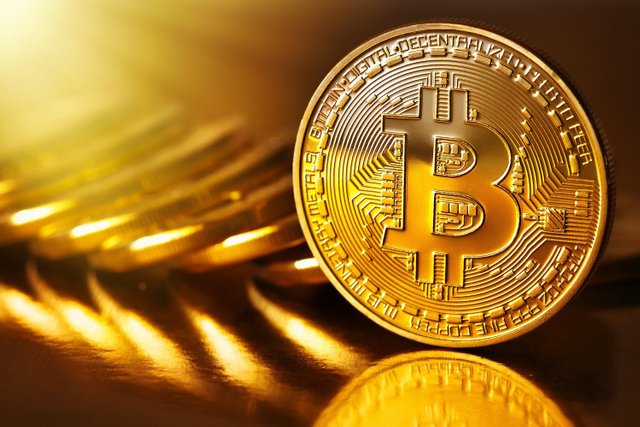
Bitcoin (BTC) is a fresh kind of digital currency-with cryptographic keys-that is decentralized to a network of computer systems employed by users and miners throughout the world and it is not manipulated by an individual organization or federal. It's the first digital cryptocurrency that has gained the public's attention which is accepted by an increasing number of retailers. Like other currencies, users may use the digital money to buy goods and services online as well as in a few physical stores that allow it as a kind of payment. Currency stock traders can also operate Bitcoins in Bitcoin exchanges.
There are many major distinctions between Bitcoin and traditional currencies (e.g. U.S. money):
Bitcoin doesn't have a centralized expert or clearing house (e.g. authorities, central bank or investment company, MasterCard or Visa network). The peer-to-peer repayment network is supervised by users and miners about the world. The money is anonymously moved straight between users through the internet without going right through a clearing house. Which means that transfer fees are lower.
Bitcoin is established through an activity called "Bitcoin mining". Miners about the world use mining software and computer systems to solve sophisticated bitcoin algorithms also to approve Bitcoin ventures. They are granted with transfer fees and new Bitcoins made from resolving Bitcoin algorithms.
There's a limited amount of Bitcoins in flow. Corresponding to Blockchain, there have been about 12.1 million in flow by Dec. 20, 2013. The issue to mine Bitcoins (solve algorithms) becomes harder as more Bitcoins are produced, and the utmost amount in blood flow is capped at 21 million. The limit will never be reached until about the entire year 2140. This makes Bitcoins more valuable as more folks use them.
A general public ledger called 'Blockchain' documents all Bitcoin ventures and shows each Bitcoin owner's individual holdings. Anyone can gain access to the general public ledger to validate deals. This makes the digital money more clear and predictable. Moreover, the transparency inhibits fraud and two times spending of the same Bitcoins.
The digital money can be had through Bitcoin mining or Bitcoin exchanges.
The digital money is accepted by a restricted number of vendors online and in a few brick-and-mortar retailers.
Bitcoin wallets (just like PayPal accounts) are being used for storing Bitcoins, private tips and general public addresses as well for anonymously transferring Bitcoins between users.
Bitcoins aren't insured and aren't protected by authorities agencies. Hence, they can not be recovered if the trick keys are taken by the hacker or lost to a failed hard drive, or because of the closure of your Bitcoin exchange. If the trick tips are lost, the associated Bitcoins can't be recovered and would be out of blood circulation. Visit this hyperlink for an FAQ on Bitcoins.
I assume that Bitcoin will gain more popularity from the general public because users can continue to be private while buying goods and services online, orders fees are lower than mastercard payment networks; the general public ledger is obtainable by anyone, that can be used to avoid fraud; the money source is capped at 21 million, and the repayment network is managed by users and miners rather than a central specialist.
However, I really do not feel that it is a superb investment vehicle since it is incredibly volatile and is also not very secure. For instance, the bitcoin price grew from around $14 to a optimum of $1,200 USD this season before falling to $632 per BTC during writing.
Bitcoin surged this season because traders speculated that the money would gain wider approval and that it could upsurge in price. The money plunged 50% in December because BTC China (China's most significant Bitcoin operator) declared that it might no longer recognize new deposits credited to government restrictions. And corresponding to Bloomberg, the Chinese language central lender barred finance institutions and repayment companies from controlling bitcoin transactions.
Bitcoin will probably gain more general population acceptance as time passes, but its price is incredibly volatile and incredibly very sensitive to news-such as federal rules and restrictions-that could adversely impact the money.
Therefore, I really do not suggest buyers to purchase Bitcoins unless these were purchased at a significantly less than $10 USD per BTC because this might enable a much bigger margin of safe practices.
Otherwise, I assume that it is way better to purchase stocks which may have strong basic principles, as well as great business leads and management groups because the primary companies have intrinsic worth and are usually more predictable.
Disclosure: Victor Liang has does not have any positions in Bitcoins and does not have any plans to improve his position within the next 72 hours.
Article Source: http://EzineArticles.com/8214833
Crypto currencies will do to banks what email did to post offices
Downvoting a post can decrease pending rewards and make it less visible. Common reasons:
Submit
you are right
Downvoting a post can decrease pending rewards and make it less visible. Common reasons:
Submit
Run away
Yu're stemmtastic
Downvoting a post can decrease pending rewards and make it less visible. Common reasons:
Submit